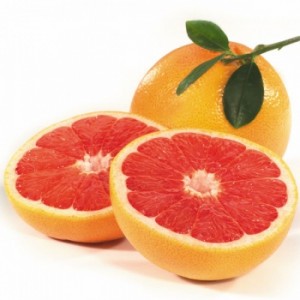Naringin is the chemical compound in grapefruit that is responsible for its bitter taste. It is classified as a phytochemical, which is a naturally occurring plant compound with potential nutritional benefits.
Contents
Uses
Naringin has also been shown to enhance the effects of drugs used to treat cancer. In laboratory studies, naringin has been shown to reduce damage to healthy cells and increase sensitivity of cancerous cells exposed to the conventional chemotherapy drugs bleomycin and doxorubicin.
Benefits
Naringin may be instrumental in inhibiting cancer-causing compounds and, thus, may have potential chemotherapeutic value. The supplement may also help treat diabetes and improve heart health by regulating cholesterol levels and helping to lower blood pressure. Naringin has also gained attention for its ability to prevent bruising and bleeding and to heal damaged tissue after a workout, but scientific evidence is lacking.
Specifically, naringin may help to:
Prevent and treat cancer. Flavonoids ”the compounds that give grapefruit their colorful pigment”act as powerful antioxidants, preventing cell damage caused by unstable oxygen molecules known as Free radicals. In a 2008 laboratory study evaluating the anti-tumor effects of six citrus flavonoids, naringin and naringenin (also found in grapefruit) showed significant anti-tumor effects, while the other four flavonoids were inactive. In a 2012 study, naringin inhibited tumor growth by up to 75% in rats with cancerous tumors and led to complete tumor regression in two of the rats.
Naringin has also been shown to enhance the effects of drugs used to treat cancer. In laboratory studies, naringin has been shown to reduce damage to healthy cells and increase sensitivity of cancerous cells exposed to the conventional chemotherapy drugs bleomycin and doxorubicin.
Regulate blood sugar in diabetes. Preliminary studies indicate that the hypoglycemic effects of naringin may be useful in regulating blood glucose levels in patients with diabetes. In a 2008 study, treating diabetic rats with high doses of naringin and Vitamin C regulated blood sugar levels as effectively as insulin alone. However, conflicting evidence exists. A 2012 study found that naringin alone did not exhibit hypoglycemic effects in diabetic rats.
Naringin has also been shown to help prevent eye and nerve damage in people with diabetes. Cataracts can form when the breakdown products of sugar accumulate in the lens of the eye. Several laboratory studies examining the lenses of diabetic animals have found that flavonoids like naringin work as an aldose reductase inhibitor to prevent this transformation.
Improve heart health. Some studies have shown that naringin increases levels of HDL (“good”) cholesterol, which helps to slow accumulation of artery-clogging plaque. In a 2004 study, naringin was as effective as the conventional medication lovastatin in decreasing total and LDL (“bad”) cholesterol and increasing HDL cholesterol in rats. Naringin also seemed to prevent damage to the aortic wall.
Caution
Since the compound decreases enzyme activity in the digestive tract, the metabolismof drugs is also affected. The concentration of drugs in the blood generally increases when taken with naringin, which can lead to unexpected side effects. For example, a higher concentration of drugs designed to treat high blood pressure may lower the blood pressure to a point that causes fainting.
Interactions
None are recorded.
Other names
Naringoside
Reference
Source: Wikipedia, https://en.wikipedia.org/wiki/Naringin
WiseGeek, http://www.wisegeekhealth.com/what-is-naringin.htm
WholehealthMD, http://www.wholehealthmd.com/ME2/dirmod.asp?type=AWHN_Supplements&id=BEDFFBD34E734949B5CE53E3A20627D8&tier=2

